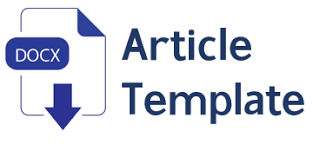The Politics Of Narcotics Law In The Reconstruction Of The Authority Of Institutions Providing Rehabilitation For Narcotics Addicts
Keywords:
Politics of Narcotics Law;, Reconstruction;, Institutions Providing Rehabilitation for Drug AddictsAbstract
Narcotics Law and its derivative regulations do not yet clearly indicate the leading sector for implementing rehabilitation. The construction of the regulations contained in the Law delegates the implementation of rehabilitation to sectoral ministers which causes the rehabilitation program to become a sectoral ministry program and has not demonstrated good inter-sector linkages and cooperation in its implementation. The construction of this kind of arrangement has the potential to reduce rehabilitation to just a ministerial program and lose the big picture that the Narcotics Law aims to achieve. This type of research is normative research used a statutory approach and a conceptual approach. The data source used is secondary data. Data analysis was carried out descriptively qualitatively. This research produces findings that the Government has attempted to make regulations that guarantee Health for its citizens with the mandate of the 1945 Constitution. Various efforts have been made to create a special law on narcotics and revise the law. Law Number 35 of 2009 concerning Narcotics (Narcotics Law) distinguishes between dealers, sellers and dealers and narcotics addicts, because addicts may be considered victims of dealers or sellers who abuse these narcotics. Rehabilitation, both medical and social, is an institution that has an important role in carrying out the mandate and objectives to be achieved by Law 35/2009, namely ensuring the regulation of medical and social rehabilitation efforts for narcotics abusers and addicts
Published
Issue
Section
Copyright (c) 2024 Boy Nurdin, Kukuh Setio Utomo

This work is licensed under a Creative Commons Attribution-ShareAlike 4.0 International License.
Authors who publish with this journal agree to the following terms:
- Authors retain copyright and grant the journal right of first publication with the work simultaneously licensed under a Creative Commons Attribution-ShareAlike 4.0 International. that allows others to share the work with an acknowledgment of the work's authorship and initial publication in this journal.
- Authors are able to enter into separate, additional contractual arrangements for the non-exclusive distribution of the journal's published version of the work (e.g., post it to an institutional repository or publish it in a book), with an acknowledgment of its initial publication in this journal.
- Authors are permitted and encouraged to post their work online (e.g., in institutional repositories or on their website) prior to and during the submission process, as it can lead to productive exchanges, as well as earlier and greater citation of published work.




